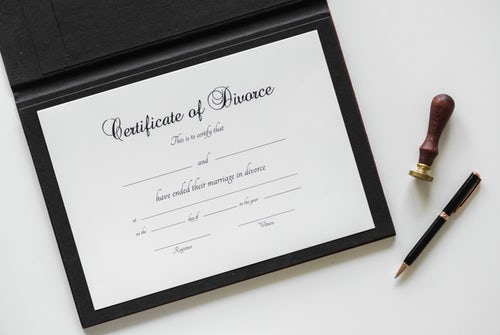Grounds for Divorce

It’s very easy to get married but difficult to get divorced which is often exacerbated by the archaic English and Welsh legal system. From the beginning couples have to pick sides against each other by blaming that their partner has committed a ‘fault’ against them. This creates conflict from the outset.
In order to start divorce proceedings in England or Wales, you first need to have been married for at least 12 months.
To file a divorce petition against your spouse you must prove to the court that your marriage has irretrievably broken down by establishing one of the following grounds for divorce:
Adultery
Desertion
Unreasonable Behaviour
Separation of 2 years with consent
Separation of 5 years – no consent required
Adultery by your spouse
The law recognises the act of adultery as sexual intercourse with someone else of the opposite sex.
This must be proved through actual admission or through sufficient circumstantial evidence your spouse has had sexual intercourse with another person of the opposite sex and that you find it intolerable to live with your spouse.
Adultery can be used as the basis for a divorce petition whether you and your spouse are still living together or have separated, but in either case not more than six months must have elapsed since you became aware of the adultery before the petition is sent to the court, unless the adultery is continuing.
If your spouse isn’t prepared to name the person he/she committed adultery with or indeed admits that it happened, you would need to consider using other grounds to prove the breakdown of your marriage.
Desertion
Your husband or wife has left you:
Without your agreement
Without a good reason
To end your relationship
For more than 2 years in the past 2.5 years
Where your spouse deserted you without your consent for a continuous period of at least two years; this reasons for divorce is almost never used as it requires the mental intent to divorce throughout the two-year period, which can be very difficult to prove.
Unreasonable behaviour
Your husband or wife has behaved in such a way that you cannot reasonably be expected to live with them.
Unreasonable behaviour is now the most commonly used reason on which to prove the ground for divorce in England and Wales.
In an unreasonable behaviour petition, the petitioner sets out a number of allegations against the respondent.
This could include:
Physical violence
Verbal abuse, such as insults or threats
Drunkenness or drug-taking
Refusing to pay for housekeeping
Financially irresponsible
You will need to provide sufficient reasons as to why your marriage can no longer work
You’ve been separated for more than 2 years
You can apply for a divorce if you’ve been separated for more than 2 years and both agree to the divorce.
Your husband or wife must agree in writing.
You can be separated while living in the same home as long as you’re not together as a couple (for example you sleep and eat apart).
2 years separation with consent is possibly the most amicable and quick way to obtain a divorce, but this does require a level of agreement that isn’t possible for every couple.
If you cannot agree to a 2 years separation divorce, you would need to consider filing for divorce using unreasonable behaviour, or waiting until you’ve been separated for 5 years, which may be too long for you to wait.
Five-years separation – no consent required
You and your spouse have been living apart for at least five years immediately preceding the presentation of the divorce petition. In this instance, your spouse need not consent to the divorce.
However, they can hold up the final decree if they believe they would be financially worse off, but this is very uncommon.
Husband or Wife disagrees.
As you can see, depending one’s individual situation, choosing the right grounds for divorce to base your divorce on can be complex and will require some thought.
With this blame culture is it time for divorce legislation to be moved into the 21st century by introducing no-fault divorce into the English and Welsh legal system?


